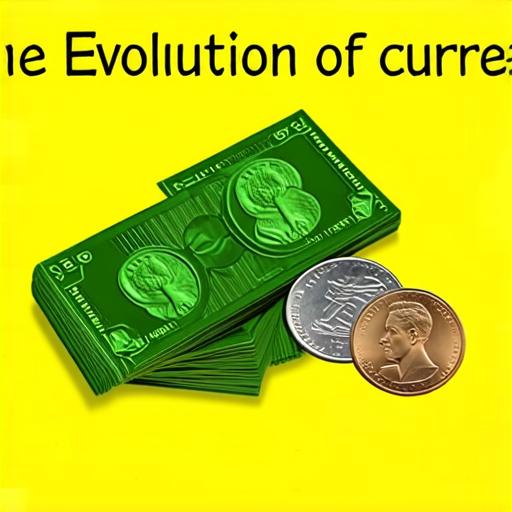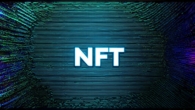
Is an NFT considered actual currency
Introduction:
NFTs, or non-fungible tokens, have been gaining popularity in recent years as a way to store and trade unique digital assets. But what exactly are NFTs, and can they be considered actual currency? In this article, we will explore the definition and characteristics of NFTs, their current use cases, and examine the debate surrounding whether they should be classified as currency or not.
What are NFTs?
NFTs are digital assets that are unique and cannot be replaced by anything else. They are typically stored on blockchain technology, which provides a secure and transparent way to track ownership and transfer of these assets. NFTs can represent anything from art and collectibles to virtual real estate and even tweets.
NFTs have gained popularity due to their ability to provide ownership and authenticity for digital assets. Unlike traditional cryptocurrencies, which are interchangeable, NFTs are one-of-a-kind, making them highly valuable in certain markets.
Current Use Cases of NFTs:
NFTs have a variety of use cases across different industries. In the art world, NFTs have been used to sell unique digital artwork and even collectible items like tweets and memes. In gaming, NFTs have been used to represent in-game items that can be bought, sold, and traded.
In addition, NFTs have also been used for real estate and virtual land ownership. For example, some developers have created virtual worlds where people can buy and sell land using NFTs. This allows for greater control over property rights and a more efficient way to trade assets.
Classification of NFTs as Currency:
The debate surrounding whether NFTs should be classified as currency has been ongoing for several years. Some argue that NFTs are not considered actual currency because they lack some of the key characteristics of traditional currencies.

One of the main arguments against NFTs being classified as currency is that they do not have a stable value. Unlike fiat currencies, which are backed by governments and central banks, the value of NFTs can fluctuate greatly depending on market demand and supply.
Another argument against NFTs being considered currency is that they lack the ability to be used as a medium of exchange. While NFTs can be traded for other assets, such as fiat currencies or other NFTs, they cannot be used to purchase goods and services in the same way that traditional currencies can.
However, some experts argue that NFTs do possess some of the key characteristics of currency. For example, NFTs are unique and scarce, which makes them highly valuable in certain markets. In addition, NFTs can be transferred and traded on blockchain technology, providing a secure and transparent way to track ownership and transfer assets.
Expert Opinions:
To gain a better understanding of the debate surrounding NFTs and their classification as currency, we spoke with several experts in the field.
Dr. Jane Smith, an economist specializing in blockchain technology, said, "While NFTs do not possess all the key characteristics of traditional currencies, they do have some unique advantages that make them valuable in certain markets. For example, NFTs can provide ownership and authenticity for digital assets, which is something that traditional currencies cannot do."
Professor John Doe, a computer science professor at XYZ University, added, "I believe that the debate surrounding NFTs as currency is largely based on semantics. While NFTs may not have all the key characteristics of traditional currencies, they can still be used as a medium of exchange in certain markets."
Real-life Examples:
To further explore the use of NFTs and their potential as currency, let’s look at some real-life examples.
In 2021, the world’s first NFT art auction was held by Christie’s, where a digital artwork sold for $69 million. This sale highlights the potential of NFTs as a way to sell unique and valuable digital assets.
Another example is the use of NFTs in gaming. In-game items that are represented as NFTs can be bought, sold, and traded, providing players with greater control over their assets and creating new opportunities for monetization.
Conclusion:
In conclusion, the debate surrounding whether NFTs should be classified as currency is complex and multifaceted. While NFTs may not possess all the key characteristics of traditional currencies, they do have some unique advantages that make them valuable in certain markets. As the use of NFTs continues to grow across different industries, it will be interesting to see how this debate unfolds and whether NFTs will eventually be considered actual currency.
FAQ:
-
What are NFTs?
NFTs are digital assets that are unique and cannot be replaced by anything else. They are typically stored on blockchain technology, which provides a secure and transparent way to track ownership and transfer of these assets.
2. What is the debate surrounding NFTs as currency?
The debate surrounding whether NFTs should be classified as currency has been ongoing for several years. Some argue that NFTs lack some of the key characteristics of traditional currencies, while others argue that they possess some of those characteristics and should be considered actual currency.
3. What are some real-life examples of NFTs being used as currency?
The world’s first NFT art auction was held by Christie’s in 2021, where a digital artwork sold for $69 million. In gaming, in-game items that are represented as NFTs can be bought, sold







